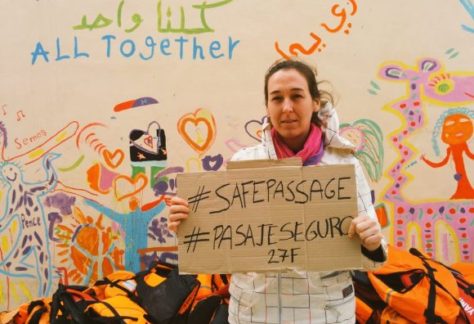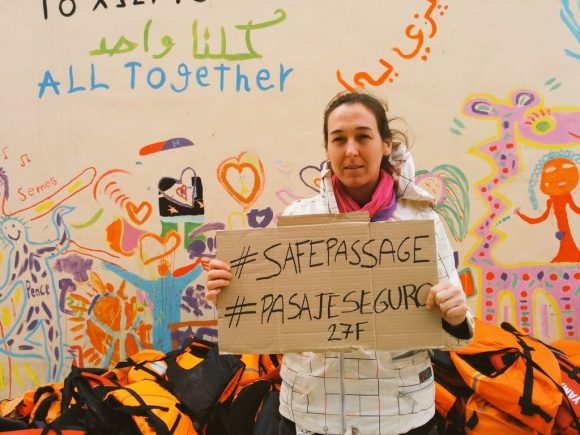Creating social value, how can we be sure? A Guest blog by Susan Balet from Stone Soup Consulting

Creating social value, how can we be sure?
On April 10th and 11th, Stone Soup Consulting had the opportunity to be part of the Social Value Matters conference in Istanbul. This annual conference, organised by Social Value International and KUSIF, was aimed at how best to amplify voices, inspire change and maximise value while raising awareness on how social value matters. It might seem something obvious for all of us participating at the conference – we were all related to the social sector and social value drives our work. But the topic of the conference made me ask myself the following question: do we stop in our daily busy lives to check and reflect if we are really adding social value through what we do? Do we talk to our stakeholders openly enough to find out if we are or not creating value for all sides? Are we creating the space in our organisations to discuss if we could be generating a negative impact? Do we let that reflection happen?
If I give myself a minute, my response is clearly and unfortunately “not really”. Not so often in the social sector and neither in the private sector. I truly believe we still have to integrate a learning approach in our work. We need to keep evolving towards management models that allow us to integrate those tools and practices that will firmly help answer clearly to these questions. As well as social impact measurement and evaluation, that will let us stop for a minute and think. By doing this we will be able to observe, feel and maybe fully understand the social value we create, if any. The worst news is that we might find we are creating negative externalities. Although never intended, we must be aware that good intentions can sometimes lead to negative consequences.
It was beautiful and fulfilling to see at the conference so many initiatives creating very needed social value, although still scarce in many fields. We heard good examples of projects related to labour integration of refugees, children and forced migration or stakeholder involvement in the field of education such as Tarlabaçi Toplum Merkezi (Tarlabaçi Community Center) or Hayat Sür Dernegi. I was particularly shocked by the scale of the, still very unknown, refugee crisis that is taking place in Turkey. The scale of problems to solve, just at our doorstep, is huge.
Ross Wyatt, from Think Impact in Australia, facilitated an interesting workshop related to the communication of social value. Ross argues that the ideal is to communicate data in combination with deep understanding stories, to make sure we give funders more than what they expect, by humanising data as much as possible: with names of people and their stories. I also found the space at the end of the day for open questions to the audience quite innovative and challenging. Ivan Juric, Advisor to the board of the Latsis Foundation & Guerrilla Foundation raised a very interesting issue: “What about de-growth? We should look at innovations like co-working spaces that mix indigenous knowledge with contemporary society as role models. Promote communitarian ways of cooperation and look at things from a reuse point of view. Sustainable development and CSR are just nice ways of eluding the real problem: we need to de-grow.” I think that he certainly has a point. In general terms, it has been proven that we are not changing the traditional model towards a more sustainable one. Few companies are achieving sustainability, but as a global community we are far far away from it and the planet won’t cope with it much longer. Maybe our generation will, but what about our children?
And finally the issue of inequality came up. Jeremy Nicholls Chief Executive of Social Value International facilitated a roundtable where we brainstormed on how inequality could be reduced and how this could be measured. Two main aspects were highlighted: any model able to measure the reduction of inequality would have to include among other factors, firstly, indicators that can show the distribution of the capital ownership. And secondly, the composition of the value chain of any product or service created by an organisation. It was very interesting to be part of such round table and realise how difficult it is to reduce inequality and even more, be able to demonstrate it through an appropriate measurement process.
At Social Value Matters we facilitated a roundtable named “Evaluating the evaluators” in which we wanted to exchange about evaluating our own work, learn from each other ‘s own measurement processes, and share our own challenges. As professionals that measure social impact, we are constantly telling others to evaluate and measure the impact of their activities, but do we do it ourselves? It was surprising to see how few evaluators showed up at our table and even more to find that from the few who joined, no one had measured the impact of their own work. Some even stated it was too “advanced” for them. So I ask myself, shouldn´t we – professionals who evaluate the social sector, be the first to dedicate our time and efforts to find out if we are truly adding social value to society, stakeholders and clients?
We still have so much to do to improve our learning practice… and addressing failure in our organisations could possibly be the best next step in that direction.
Thank you SVI for organising this enriching and thought provoking event.
You can follow Susan Balet on Twitter: @sbalet
Find out more about Stone Soup Consulting
Find out more about Social Value Matters 2017
Find out more about our partners KUSIF

